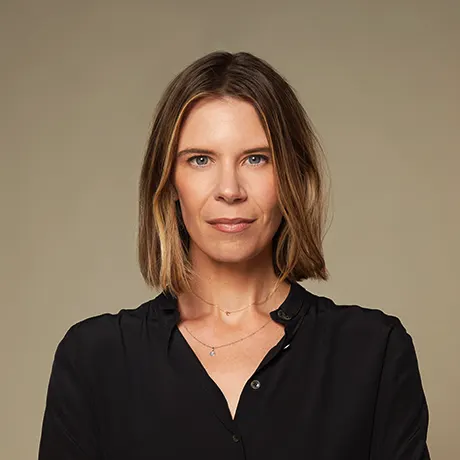Twice exceptional: Raising a gifted son with ADHD (Emily’s story)
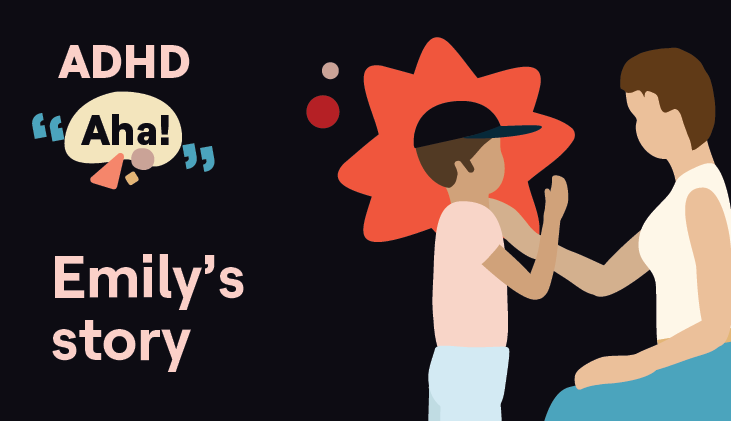
Stay in the know
All our latest podcasts delivered right to your inbox.
From a very young age, Emily Hamblin’s son would have meltdowns and get intensely angry. He was also really bright. He was ahead of the curve academically and scored in the 99th percentile on standardized testing. His teachers would say he was just “smart and quirky.” That didn’t sit right with Emily, though. She knew something else was going on.
Then one day, a friend suggested that Emily look into ADHD. Emily was skeptical at first. But when she learned more, it was clear that this was the missing puzzle piece. Her son was twice exceptional: He’s gifted and he has ADHD. This discovery even helped Emily recognize ADHD symptoms in herself.
Emily co-hosts a podcast called Enlightening Motherhood, which aims to help moms who are overwhelmed by their kids’ big emotions. Listen in to hear how Emily reframes ADHD symptoms in a positive light.
Related resources
Twice-exceptional Black and brown kids (The Opportunity Gap podcast episode)
Episode transcript
Emily: I had a friend and I heard her talking to someone about her child's behaviors. And I kind of stopped in my track because it was the first time I heard someone describe my son's behaviors. At the time, I took it as, "Oh, he's just disrespecting me." But finally, that friend said, "You know, that sounds like impulsivity. Have you ever thought that he has ADHD? Because emotional dysregulation is also a part of ADHD." And I was like, "No, no, no. There's no way he has ADHD. He can sit down and read a book without blinking for three hours. If he had ADHD, he couldn't focus that long, right?" And I of course, I fought against it. Then I looked it up and was like, "Oh, my goodness."
Laura: From the Understood Podcast Network, this is "ADHD Aha!," a podcast where people share the moment when it finally clicked that they or someone they know has ADHD. My name is Laura Key. I'm the editorial director here at Understood. And as someone who's had my own ADHD "aha" moment, I'll be your host. I'm here today with Emily Hamlin. Emily is a life coach and a mom to a son who's gifted and has ADHD. She's also the host of "Enlightening Motherhood," a podcast dedicated to empowering moms of kids with big emotions. Hi, Emily. I'm so happy to have you on the show today.
Emily: I'm so excited to be here. Thank you.
Laura: Let's start by telling our listeners and me about your son.
Emily: I'm going to use a pen name for him just to keep his identity a little bit confidential. I'll call him Jack. Jack has always been so bright. He was the kid when he was one year old, and we brought him up to the light switches he would study which light turned on. We'd see him turn and predict which one it was and get this look of satisfaction when he got it right. And so he's always been really, really bright. And when he was in preschool —he was 3 years old — I remember he started to have some kind of really intense behaviors. He would have meltdowns and scream and just become so intensely angry. And I felt like it wasn't very normal, like the twos were actually OK. Everyone says terrible twos, but for us, it was 3 and 4 that was when the, those kind of behaviors started popping up. But I kind of felt that it wasn't super typical.
And I went to his preschool teacher and I remember saying, "He's doing great academically, but we're seeing these behaviors pop up." And she would say, "Oh, no, he's just copying the other kids, throwing fits at school," or "Oh, he's just a little bit quirky because he's so bright." And in kindergarten, he was reading 100 sight words before kindergarten, and he went to school, and they would say, "OK, well, here's the letter 'A.' It makes the sound 'Ah.'" And so, he would start to act up in kindergarten. And again, the teacher would call me in and she said, "Well, let's just skip him to first grade. I think that will solve all of his behavioral issues." And I was like, "Oh, he's already the little kid in kindergarten. I don't want to have him be this tiny kid in first grade," but that's kind of what was offered.
So, we tried a lot of, you know, sticker charts and what I could at the time, never really figuring out the underlying issue. And we got him through that patch. First grade, he had a really good teacher who recognized "OK, he does not need to sit and read line by line with us in this book. Here, Jack, you can bring this book to the corner. You can read at your own pace." And it was like the perfect fit that we've ever had for him for schooling, but he still told me one time, "Mom, we had to partner read on the rug in school, and the book was just so easy that I decided to lay down out on the rug and roll around and make noises instead."
Laura: Oh, wow. So, is this about the time that you discovered that Jack was gifted?
Emily: Yes. They tested him in school, and he tested 99th percentile gifted. And there wasn't really a gifted program, but his teacher was accommodating him as much as she could. And it was really great because the homework was the worst when he already knew how to do it beforehand. And he would come home with, "OK, write the word 'cat.'" And he was reading Harry Potter at that point in time. It was like pulling teeth to get him to do it, even though it would only take him about five minutes or so, right? But he would throw a fit for about 40 minutes over not wanting to do the homework. And I couldn't quite figure him out. At this point, I really was suspecting that he was neurodivergent and I went to Google.
Laura: Dr. Google.
Emily: Yeah, Dr. Google. And I thought maybe he has autism. I don't know. And I went to his teacher, and I said, "Do you think Jack has autism?" She said, "No way. He's just smart and quirky." And that was what they always would say, "No, he just has these little, like, behavioral quirks to him and he's smart, and the two combined," and it wasn't really explaining the intense emotions, which is the hardest thing for us as parents to handle. So, it was not until third grade, where I had a friend and we were at a workout group and I heard her talking to someone about her child's behaviors. And I kind of stopped in my track because it was the first time I heard someone describe my son's behaviors, where he made a little mistake on his homework, and then suddenly he ripped it up and then he was raging for like 20 minutes over this little mistake on his homework. And I stopped in my tracks, I was like, "Can we connect?"
And I don't remember exactly where it went from there, but I just remember her being this support. And I would say, "No, I just, I need him to listen to me when I say 'stay off my phone' and he walks past my phone and he gets on my phone and it's like he just ignores me and he disrespects me because he gets on it anyways," I had no idea what impulsivity was or what it meant. But looking back, that's totally what was going on. He just couldn't control that impulse. Whereas at the time I took it as, "Oh, he's just disrespecting me." And the teachers would say, "Oh, he's just been bad in class," or "He won't listen to us." Nobody understood any of that underlying things.
But finally, that friend said, "You know, that sounds like impulsivity. Have you ever thought that he has ADHD? Because emotional dysregulation is also a part of ADHD." And I was like, "No, no, no. There's no way he has ADHD. He can sit down and read a book without blinking for three hours. If he had ADHD, he couldn't focus that long, right? Or he couldn't sit still that long, right?" Of course, that's what I thought. What everyone says on your show, what we thought and what we know now.
Laura: That's what we do here. Yeah, that's right. So, it sounds like that was the start of your ADHD journey. Maybe your ADHD "aha" moment for your son.
Emily: Yeah. And I, of course I fought against it. Then I looked it up and was like, "Oh my goodness." Like it was the whole package. It's not just "He can't pay attention and he can't sit still." It had that whole package, and I went to his third-grade teacher who was really close to students and really perceptive of them, which was great, and I said, "Do you think he might have ADHD?" It was like, "Yes, please go get him evaluated."
Laura: Wow. What happened then? How did the evaluation process go?
Emily: We just found an ADHD clinic and she emailed us all the forms ahead of time. So, we only had one in-person visit, but filling them out, we did the NICHQ, and looking through those questions and filling them out for him, I was like, "Oh my goodness." He was marking pretty much everyone. I don't remember the exact scale, but like very often, I think is what the highest one pretty much everyone was very often. And as I was filling it out for him, I had my own "aha" moment where I went, "Oh my goodness, I'm checking all these boxes, too." And I never even considered that I could have ADHD. But suddenly it explained my own emotional dysregulation and my own tendency to just get lost in time and not realize that time had passed or procrastination, things like that. It was like a double "aha" moment.
Laura: Your son is twice exceptional. Could you define that for our listeners? This is the first time we've had the opportunity to talk about twice exceptional or 2e on the show.
Emily: So, he's twice exceptional in it that on the one hand, he is academically gifted, but he also has this additional neurodiverse side to him, which for him is ADHD. So, he has both going on at the same time. Getting that diagnosis was kind of difficult because it was almost like the giftedness was masking the ADHD. He was compensating with his ability to do so well in academics, but we didn't notice really what was going on.
Laura: It's so tricky already to spot signs of ADHD. There's so many misconceptions about ADHD and how it presents. That's just got to add this extra layer of misconceptions or confusion.
Emily: Yeah, and there's kind of a social conception, too, that children that are academically gifted should be quirky. And so, they would just describe all of those quirks as a result of his giftedness that it couldn't be something else.
Laura: Because your son is academically gifted. I imagine there are all these expectations around what he's supposed to be able to do, and he's supposed to be extra mature and extra good at everything. Do you find that that's true?
Emily: Yeah, and I had that for a long time, too. I would say "You're too smart to be melting down over brushing your teeth. Can't you see that brushing your teeth will take you three minutes and this fit is taking you 15 minutes? Why don't you just brush your teeth? Why can't you be logical? You're smart enough."
Laura: Did you ever feel judged as a parent during this journey?
Emily: I mean, definitely. I feel like most parents feel judged for their children's behaviors, and I just felt like it took so much more effort and people didn't realize that I was trying. I would get like phone calls home, "Oh, Jack did this again in class," and I would be like, "OK, I'm working on him and I'm trying." And he was doing his best too. For him, it was frustrating. There was one time he was probably five or six and a neighbor girl came over to invite him to go to the park and she knocked on the door and we answered it and she said, "Hey, Jack, want to come play at the park with me?" And her dad was with her. It was a really safe situation, but he didn't know how to handle it. So, he just like froze and he turned around 180 degrees and just let her stare at the back of his head, and he just shut off.
Laura: Oh, wow.
Emily: And then they're looking at me like, "So what's going on with your son?" And I'm looking at my poor son, just my heart breaking. I don't know if they were judging me, but at the time, I felt judged. I could imagine them thinking, "Why can't you teach your son social skills instead of realizing, "Oh, your son is trying so hard. He just had a hard time."
Laura: From that moment to where you are now, what kinds of things helped you cope with feeling, judged, and what kinds of strategies maybe brought you and Jack closer together or things that you would say?
Emily: Mindset is huge. Realizing that he wasn't just trying to be bad, or he wasn't choosing to be impulsive and he wasn't intentionally melting down, realizing that he was really doing his best. There was just a lot going on for him. That helped me out a lot. Also starting to see behavior as communication of something bigger. That was a huge deal. Like, that's probably the biggest thing that I tried to share with everyone.
My website has a freebie on why is my child melting down and what's at the root of their intense emotions. And it's this five-step cheat sheet that I, I try to just get everyone to take a look at because the more that we understand that "My child is not intentionally being bad, it's not their fault. It's not my fault. They just need help developing these skills." Like, it just changed me from being upset and trying to get him to behave a certain way to being completely compassionate and trying to help him develop those skills.
Laura: Wow.
Emily: I say completely, but I'm still human.
Laura: Yeah.
Emily: I still mess up. I still go back to like, "Why are you doing this?" Pulling my hair out, OK I'm gonna pause. He's doing his best. And what is going on? instead of this like, "What is my child doing?" It's like, "Huh, what is my child doing?" Moving from judging my own child to curiosity, that's helped me, and then realizing other people might be judging me. And they might not be. And it's OK. Like I can be a good mom, even if they're judging me.
Laura: A lot of what you just described is the reason that I just went back to therapy. I'm not kidding. I recently went back to therapy just to cope with like, "How am I reacting to my kids? How can I change my mindset about things that bother me, etc." I'm wondering if you could maybe call out a few of the areas where it's tricky to unravel what is a gifted type behavior versus an ADHD behavior. If it's helpful to start you off, I heard you talking about boredom. And from what I know from our experts that we work with, I know that boredom can be a big factor for gifted kids. But boredom is also something that a lot of kids with ADHD struggle with. So, talk to me about symptoms.
Emily: I feel like there is a lot of crossover. I've never actually thought about separating them. For my son and for me, we don't see our ADHD as like a debilitating or a disability. We see it as a superpower. Because, and that's actually what I thought was going on. His mind was just always going so fast, and that helped him learn things really quickly and it helped him understand and it helped him come up with these ideas. But it also leads to like acting really fast and you can't wait your turn to speak. You just have to blurt out your answer right now because it's fresh on your mind and you can't wait to share it and interrupting conversations, acting without thinking. I always thought it was just the super-fast brain.
But a lot of things like impulsivity is a symptom of ADHD. And I'm like, "But being spontaneous," that's what we always call it, "is really fun and it can be really creative," right? So, is that the giftedness, or is that what most people think is ADHD actually having a good spin on the same symptom?
Laura: How does Jack identify? Does he use terms like 2e year or twice exceptional, gifted, ADHD, or just not a thing for him?
Emily: It's not really a thing for him. Once in a while, he'll say, "Hey Mom, so I was at school..." and stop mid-sentence, and then he'll come back and say, "Is that because I have ADHD?" Like, he's asking why he just stopped mid-sentence.
Laura: Wow. Good for him. I love that curiosity.
Emily: And so, we approach it from like, "Yeah, it's likely and it's OK, right? And so, we were totally accepting of it in our house. And rather than, "Oh, that's what's wrong with me," we use it as, "Oh, that explains that quirk."
Laura: So, let's talk about your "aha" moment, Emily. When you were going through the evaluation process with Jack, which symptoms stuck out to you? Which symptoms in particular that really spoke to you and who you are as a person?
Emily: There are a lot. I think interrupting was an obvious one. When I was first married, I would interrupt my husband a lot to the point where he thought I just didn't care what he was talking about and he thought I didn't care about anything he had to say. And that wasn't it at all. I cared a lot. It was just like the thought came into my head in my mouth opened up, and I didn't realize I was doing it until he stopped me. One day he was like, "Do you realize you just interrupted me like five times in this conversation? You didn't let me finish my sentence." And I stopped and was like, "Oh, really? And why am I doing that?" I was like, "Oh, OK. Well, that's one of my quirks."
When I was younger, I did really well in school, but in college, for example, I thought everybody had the same struggles I did with sitting down and reading a textbook. I had to go to the gym to read a textbook. I had to get on a treadmill and walk or ride a bike, or I had to find an empty classroom and stand at a podium and read it out loud or pace around the classroom while reading it out loud, just to get myself to focus on it. So, I did really well in school, and I thought everyone had those struggles. And I honestly, I was graduated, and I was dating my husband, who was still in school, and we sat down — I sat down to grade papers. I was a teacher at the time — and he just put out this super boring history textbook and he sat there, and he read it, and he was turning pages. And I said, "Are you actually like paying attention to that?" He was like, "Yeah." I'm like, "No, like, you didn't have to go back and reread that first page six times?" And he was like, "No, I'm just reading it and paying attention."
Laura: Oh my God. It boggles the mind. I mean, for sure I can't. I see people do that too, and I'm like, "What are you doing? Aren't you like, how are you just not moving around?"
Emily: Yeah, he wasn't like twitching in his leg or like flipping a highlighter lit or like anything that I do to cope. And I was in my early twenties and was like, "Wait, that's possible? I really thought everyone struggled to read something boring like that."
Laura: What about impulsivity? You mentioned that Jack has struggled with some impulsivity or some spontaneity. He has the luxury of being spontaneous. What about you?
Emily: Oh, yeah. I'm a teacher and a mom, and it makes for a really fun teacher role. I'll just be sitting with the kids and be like, "You know what, kids? Let's go on a turkey hunt." And we had nothing to do with the lesson plan, but I just looked at the kids and they were fidgeting and the idea pops in my head and suddenly we're acting out a turkey hunt in the classroom and it's so much fun. But I do have to temper it because we want to be wise with that.
It's easier as an adult. I think as a child, when my upper brain wasn't fully developed, it was my classic example. I was five or six and I was at my grandma's house visiting her. She had this beautiful — it was probably a handmade doily — on one of her end tables, and there was someone had set a pair of scissors on it. You already know what happened.
Laura: Oh, my God.
Emily: I didn't even think, I was just like, "I wonder what it's like to cut through that doily." And so, I picked up the scissors and I just cut right through. I don't even know if I cut through it. I just remember cutting it and feeling I was just curious to know the texture of when the scissors went through it. I honestly wasn't trying to be bad. I didn't even think it through. I was just like, "I wonder what it's like to cut through that doily." And I try to remind myself of that when my kids do things that I'm like, "What in the world are you doing?" And like, they probably weren't thinking. They probably just had a thought pop into their head, and they acted on it.
Laura: Oh, my gosh. Emily, this is reminding me of something. When I was a kid, I remember that I didn't feel like I had enough shelves in my room, so I just went in, got some shoeboxes and some super glue, and I glued them up to the wall. And they were obviously, they were not perfectly straight either, so they were tilted, so the shelves didn't really work, but I just super glued a bunch of shoeboxes to the wall, and I was like, "Why are Mom and Dad so mad?"
Emily: I think that's incredibly creative, which I feel like people with ADHD are incredibly creative. We have these out-of-the-box thoughts who would think to go and grab shoeboxes and super glue it into the wall? Like we could say that negatively, like “Who would ever think to do this?" But we can also think, "Oh my goodness, that is brilliant." You saw a need in your room and you just went for it and you totally thought of a solution that nobody else would have thought of. That's incredible.
Laura: Thank you, Emily. And that's very, that's very validating. I appreciate it. Can you call my parents after we record?
Laura: Has your son getting diagnosed with ADHD and now you knowing that you have ADHD, has that created a unique bond in any way? Is that brought you closer together? It sounds like you've always been close, but just curious.
Emily: Yeah, it's helped me be a lot more empathetic, like where I realized, "Well, I wasn't trying to interrupt my husband," and when he interrupts me, I'm like, "He's not trying to do this. It just kind of that that in his head, in his mouth opened up."
Laura: Right.
Emily: I'll say something like, "This is our superpower." And his little brother was recently diagnosed with ADHD also. And I'm a little bit suspicious that the third one might have it, but he's not quite old enough yet for us to get him evaluated. And so, yeah, I just, my poor neurotypical husband, he never understands why we're like so creative and so spontaneous and just...
Laura: I bet he loves it. That's got to be really exciting, right?
Emily: He does, I mean, he married me for a reason, right?
Laura: That's a lot of spice of life that you're going to have that you already have in your house.
Emily: It is.
Laura: You're like "It is, I'm tired."
Emily: It's fun. It's fun. I really, I mean, I wouldn't want my kids any other way, but it is a lot of work. Yeah, it really the hardest has been the emotional dysregulation part of it that I had to learn to temper myself. I would just flip a switch and get angry so fast when they were doing something that I thought that they shouldn't and learning to catch myself before I get to that ten.
Laura: That is so hard. I find that to be the most difficult thing about parenting. You know, I'll be fine, fine, fine, fine, fine, being a quote-unquote model mom, and I'm just I'm responding calmly to things and gently nudging and teachable moments. And then I just get to this point and I'm just like, "Just go to bed," and I just want to lose it. I'm like, "You got to get out of here. I can't answer this question again." And the way I just said it, it's putting it mildly. So, I feel you and I'm working on it. It's a journey.
Emily: We're all working on. It sounds like you're human. Isn't that great?
Laura: Thank you.
Emily: And we were talking about like ADHD being a superpower. A lot of things list oversharing as a part of ADHD, and I was a little bit mind blown when I read that because I was like, "I've always called it being authentic." And I realized a lot of my really close friends also have ADHD, and a lot of us didn't know until we were in adulthood. And I realized like I was being authentic, they were being authentic.
Maybe people were a little bit weirded out because they called it oversharing, but we connected with each other and just felt like we were totally open. And when people come to know me, they know the real me. I can't hide it very well. It's just who I am. And so that it's another spin on "Sure, you might be able to call it oversharing," but for me, I'm like, "I'm just telling it how it is, and now you know who I really am."
Laura: You are so good at spinning this. So, I'm going to run down what I've heard so far, and then I may ask for more. So, oversharing, reframing that as authentic. Impulsive, reframing that as spontaneous. Can I try out a few more on you and see what you come back with?
Emily: Sure, let's.
Laura: Hyperactivity. Hyperactive.
Emily: Energetic.
Laura: Yeah. Distracted.
Emily: Overly attentive.
Laura: Oh, this is great. You're so good at this. Let me think. How about disorganized?
Emily: I'm still struggling with that one.
Laura: Creative.
Emily: Human.
Laura: Human, there you go. Forgetful.
Emily: Oh, learning to use tools. Using a phone alarm all day long.
Laura: Got it. Oh, my gosh, procrastinating.
Emily: Oh, yeah. You're hitting some of my pain points right now.
Laura: Sorry.
Emily: Yeah, I don't have a creative spin on that one.
Laura: So, you've learned to flip the ones that are primarily maybe your kid's symptoms, but tougher when it's things that are more about us.
Emily: Well, yeah, I think just learning to flip the ones that I really do see as being able to be helpful. I can't, procrastinating is just one of those hard things we have to learn to find ways to deal with it, I guess.
Laura: That was really good. I'm really impressed with your ability to do that. It's just like you really, your mindset is really lovely.
Emily: Thank you.
Laura: What's one or two things that you wish more people understood about ADHD?
Emily: I think the biggest thing is that people with ADHD are really doing their best, that we're not interrupting you because we don't care about you. I guess that's the biggest one. People with ADHD are doing their best and that might look different than someone's best that doesn't have ADHD, but it doesn't mean that the efforts are not there still. And in fact, many times we're trying two or three times as much to do the same thing.
Laura: Tell our listeners about your podcast.
Emily: As you said, it's called "Enlightening Motherhood," and our goal is to help moms who are feeling overwhelmed with their children's big emotions, which often lead to big behaviors, too. And it's meant to help empower them so that we can turn that overwhelm to confidence so that they can confidently parent their children. It starts with us with our mindsets, with being able to handle those difficulties, and then we learn a lot of tools that we can apply to parenting.
Laura: Emily, it's been so great to talk with you today. Thank you so much for doing this and just for your candor.
Emily: Thank you. Thank you so much for having me. And I love the work you're doing with this podcast and with Understood. I love to follow you on Instagram and just the compassion that you have for not only people that are neurodivergent, but also trying to get the information out there in the world so that we can all understand each other a little bit more. I just love your mission and what you're standing for.
Laura: Oh, thank you so much. You've been listening to "ADHD Aha!" from the Understood Podcast Network. If you want to share your own "aha" moment, email us at ADHDAha@understood.org. I'd love to hear from you.
If you want to learn more about the topics we covered today, check out the show notes for this episode. We include more resources as well as links to anything we mentioned in the episode. Understood is a nonprofit organization dedicated to helping people who learn and think differently discover their potential and thrive. We have no affiliation with pharmaceutical companies. Learn more at Understood.org/mission. "ADHD Aha!" is produced by Jessamine Molli. Say hi, Jessamine!
Jessamine: Hi everyone.
Laura: Briana Berry is our production director. Our theme music was written by Justin D. Wright, who also mixes the show. For the Understood Podcast Network, Scott Cocchiere is our creative director, Seth Melnick is our executive producer, and I'm your host, Laura Key. Thanks so much for listening.
Host
Latest episodes
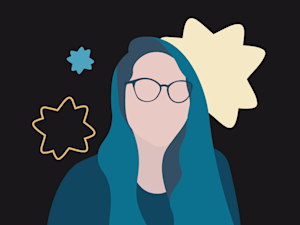
April 16, 2024
ADHD coach Jaye Lin was a gifted kid with undiagnosed ADHD. Now, she’s building communities and helping others cope with ADHD burnout.
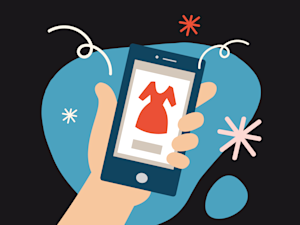
April 2, 2024
Writer Paulette Perhach had money coming in but struggled to keep it in her bank account. An ADHD diagnosis brought her struggles into perspective.
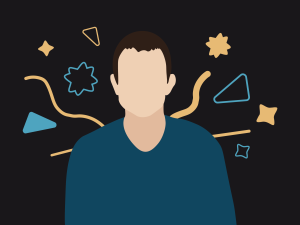
March 19, 2024
Eye to Eye founder David Flink is fighting the “just try harder” myth surrounding ADHD, dyslexia, and other learning and thinking differences.
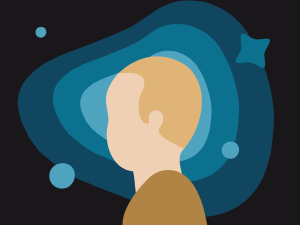
March 5, 2024
Peter Jones used to feel better saying he had a hearing problem rather than considering ADHD. Now, he knows he has ADHD and isn't afraid to say it.
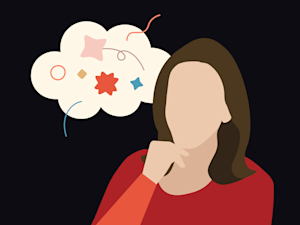
February 20, 2024
Before her ADHD diagnosis, ADHD coach Emily Weinberg thought she was just lazy. But in reality she was stuck in “analysis paralysis.”
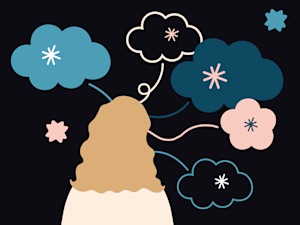
Carol Blumenstein was called an unteachable student. Now, she knows she has ADHD and dyslexia, and supports her five kids who learn differently, too.

January 23, 2024
Executive coach, actor, and former criminal defense attorney Ernest Anemone shares his ADHD story — and why he questions the term “attention deficit.”

January 9, 2024
ADHD and post-traumatic stress disorder (PTSD) symptoms can look similar. And they can morph into what Hannah calls “a trauma ball of blame.”
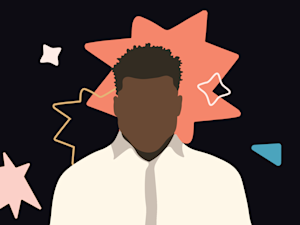
December 26, 2023
Livingston Steele was diagnosed with ADHD about a year into working at Understood.org. His experience and work have given him immense empathy for people with ADHD.
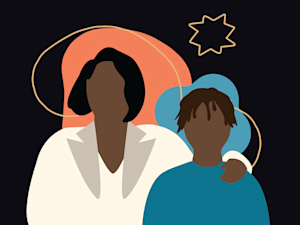
December 12, 2023
Wendy Zanders is a decluttering coach with ADHD. Find out how she got into organizing, and get a few tips for yourself.
